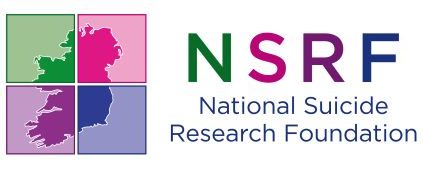Authors: Fenella Ryan, Dr Mary Joyce and Dr Paul Corcoran

What is the National Self-Harm Registry Ireland?
The National Self-Harm Registry Ireland (NSHRI) is our principal project here at the NSRF. The Registry records hospital-presenting self-harm at Emergency Departments (ED) across Ireland. It was established by us in 2000 at the request of the Department of Health and Children. The Registry is funded by the Health Service Executive’s National Office for Suicide Prevention.
Role of Data Registration Officers
The NSRF employs 16 Data Registration Officers (DROs) who visit their allocated hospitals across Ireland to collect data on self-harm presentations. We collect data in 32 hospitals since obtaining full national coverage of all general and paediatric hospital EDs in 2006.
DROs review hospital data and obtain the necessary information for the minimal dataset we record. Data are pseudonymised by DROs before compiling it for return to our office-based team of researchers.
How Registry data are used
The data returned by DROs are analysed by the office-based research team who seek to identify the extent and nature of hospital-presenting self-harm, with a view to monitoring trends over time and by area. Having comprehensive data on self-harm hospital presentations also allows us to contribute to national policy regarding suicidal behaviour and helps to advance prevention strategies.
Research findings
We publish findings from the NSHRI in regular Briefings and Reports. Registry data is often used as the data source for a wide-range of peer-reviewed journal articles, a recent example being: ‘The impact of guidance on the supply of codeine-containing products on their use in intentional drug overdose’ by NSRF team members Dr Eve Griffin, Dr Paul Corcoran and Dr Caroline Daly alongside collaborators Dr Emma Birchall and Prof Ivan Perry.
Data collection challenges
Our DROs have faced unprecedented challenges in the past 2+ years including the COVID-19 pandemic, which prevented DROs from entering hospitals to collect data, and the HSE Cyberattack in May 2021 which resulted in the loss of some hospital data. Despite these challenges, the Registry team has recently finalised their dataset for 2020, the results of which will be published in an Annual Report in the coming weeks.
Training and support
Earlier this month, we brought our DROs together in-person for the first time in two years. It was wonderful to meet with DROs in-person after multiple online meetings during the pandemic. As well as training updates and support, it also allowed for some well-needed social interaction for both DROs and office-based team members!
International surveillance systems
The success of the Registry in Ireland has led to the use of our Standard Operating Procedure as a template in other countries worldwide. One example of this is the Northern Ireland Registry of Self-Harm, which was established in 2012 with input and support by the NSRF. Other examples include work being undertaken by Prof Ella Arensman and NSRF colleagues with the World Health Organisation to implement similar self-harm surveillance systems in countries including Poland, Ecuador, Kazakhstan, Guyana, Suriname and Trinidad & Tobago.
Upcoming publications
Keep an eye on our Twitter and Publications pages for new research published based on Registry data.

